
College of Education Newsletter

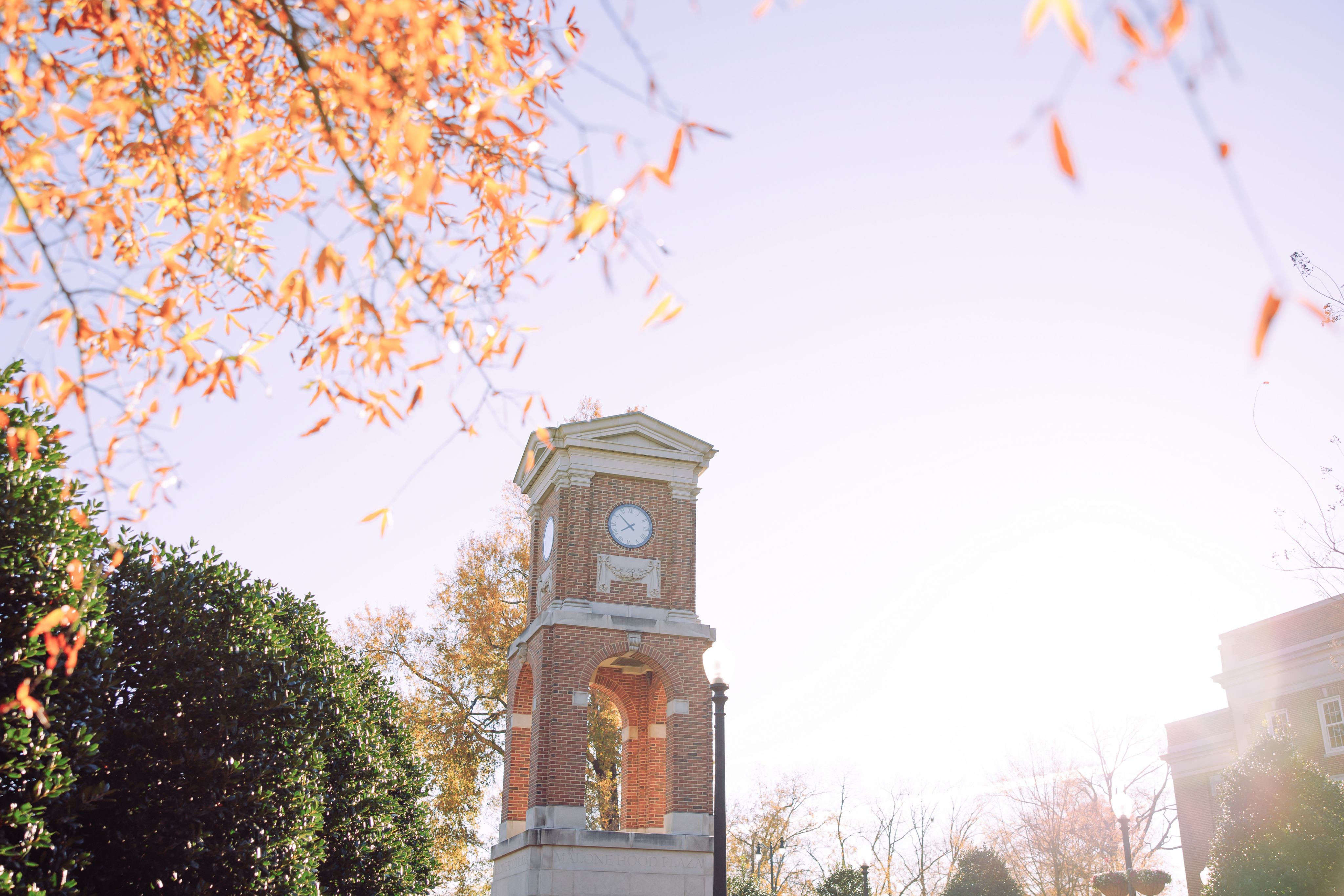
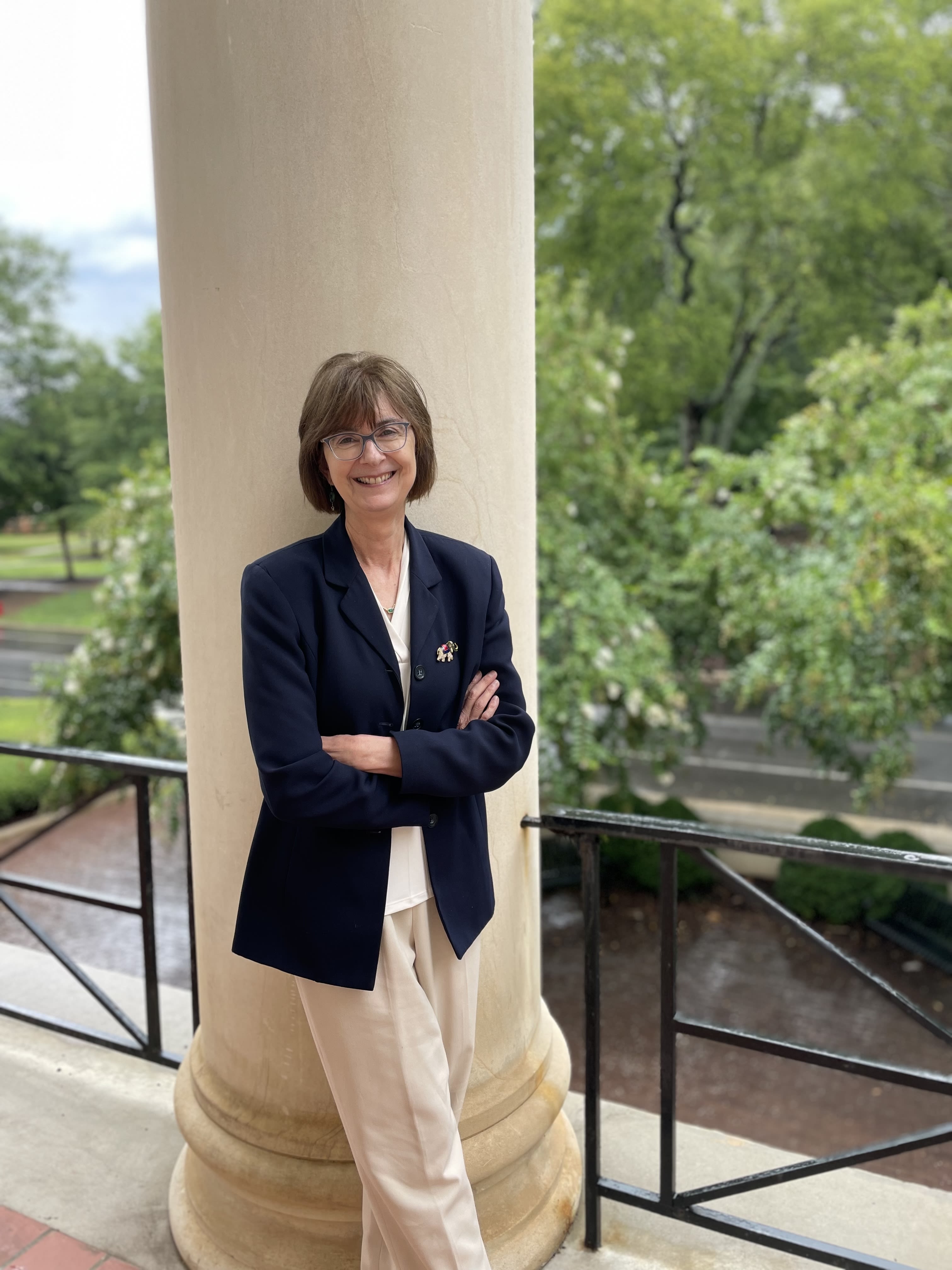
Dr. Joy Burnham begins serving as senior associate dean
Former Office of International Programs director excited to expand her role in College
More than 20 years of experience at The University of Alabama has prepared Dr. Joy Burnham to take on her new leadership role as senior associate dean of the College of Education.
In July, she made the transition from director of the Office of International Programs (OIP) and professor in counselor education, excited to embrace the new responsibilities and interactions that accompany serving as senior associate dean. With Dr. Burnham in this role and Dr. Liza Wilson as interim dean, the College has entered a new phase of leadership eager to further its successes.
Dr. Burnham said she is thrilled to support both the College and Dr. Wilson during this transition period and beyond.
“I look at the senior associate dean position as a culmination of academic experiences,” she said. “I am at that place in my career where I can take opportunities that I have been given to serve and now contribute across the College and the University. My experiences and connections with teaching, research, service, and outreach put me in a position to support the entire College.”
For 21 years, Dr. Burnham has worked within the College, devoting herself to educating and mentoring students as well as faculty. She is also the principal investigator of the Gandhi-King Scholarly Exchange Initiative, which has shaped 40 students into young civic leaders.
Through the OIP, Dr. Burnham has facilitated UA graduate degree programs in Ecuador, Colombia, and Mexico. She traveled to Shenyang, China, as a Fulbright Specialist in 2012. She has also worked closely with elementary faculty from UA and Shanghai Normal University Tianhua College in a seven-year partnership. Developing and maintaining relationships with international colleagues has been wonderful, she said, and she is grateful for the opportunities to collaborate internationally and grow the College of Education’s global footprint.
Dr. Burnham's love for education has always been there – growing up, she admired three aunts and an uncle who were teachers. Throughout school, she asked her teachers questions whenever she could. Her favorite person to talk to in high school was a social studies teacher who later moved into a school counseling position.
“He inspired me to consider school counseling more than any other person," she said. "I saw counseling as a neat blend of education and psychology, areas that tweaked my interest.”
In the end, this led her to combine two of her passions and follow a path into school counseling.
“It hit me one day… ,” Dr. Burnham said. “That’s it. That's the link between teaching, education, and psychology – counseling. So, that really was the spark to my career path.”
She earned her bachelor’s degree in elementary education from Auburn University, later attending Jacksonville State University for a master’s degree in counseling and returning to Auburn to earn a doctorate in counselor education and supervision. Dr. Burnham’s Ph.D. allowed her to move into academia.
“Deep down as an undergraduate, I knew that one day I would be back in higher education, and since I have not looked back,” she said. “UA has been a special place to be for the last 21 years. I’ve loved my opportunities and my journey on this campus.”
Dr. Burnham began her career at the Capstone in 2002 and is also a Licensed Professional Counselor in Alabama as well as a National Certified Counselor.
“I went into education because I was inspired by others,” she said. “The field of education was a place to give back, to live a good life, and it has been a great fit for me.”
From educating and mentoring students, serving as program coordinator and director, and getting the Gandhi-King grant, the journey to where she is now has been a progressive pattern, she said.
“Teaching and mentoring – that’s very much what I was initially designed to do. As a counselor, I embraced the challenge to grow, change, and develop as an educator. My career changes over time have been very fulfilling, so I look forward to this new role.”
Dr. Burnham is proud of her career at UA, and though she is stepping away from her previous titles, she will continue to be involved on a more systemic level and will collaborate with programs and departments across the College of Education.
“This is the pinnacle, to focus on and provide leadership across the College. I think we all want to make a difference in the lives of others,” she said. “I am humbled and grateful to many mentors who helped me throughout my career. In turn, I will gladly serve and work diligently in my new role.”
Alumni Spotlight: Dr. Arthur Dunning presented with Malone-Jones award
Three-time alumnus honored for bravery, contributions toward civil rights and higher education
When Dr. Arthur Dunning began attending The University of Alabama in 1966, he was one of about 30 African-American students on campus. In fact, it was only three years prior to that when then-Alabama Gov. George Wallace confronted Vivian Malone-Jones and James Hood outside Foster Auditorium in an attempt to keep them from enrolling at the University and just one year since Malone-Jones became the first Black UA graduate.
Back then, it may have seemed unlikely to think that years down the road a group of Black UA alumni would be honored on campus for their contributions toward the advancement of the University in addition to their professional accolades. Yet there Dunning and others were in the Bryant Conference Center on June 10 being recognized at the second annual Vivian Malone Alumni Awards.
“To be at the (awards ceremony), to see a room full of graduates from The University of Alabama was an extraordinary sight for me,” Dunning said. “It's something I could not have imagined in the summer of 1966 when I arrived on campus.”
The Malone Awards celebrate the legacy of Vivian Malone-Jones while honoring Black alumni who use the knowledge and skills they acquired as students at the University to achieve excellence in their professional endeavors. The program is a collaboration between the UA Culverhouse College of Business Office of Diversity, Equity, and Inclusion, the UA Black Alumni Association, and the UA Black Faculty and Staff Association.
Dr. Dunning accepted the Malone-Jones Crimson Flame Courage Award that night for his contributions toward the movement against segregation as well as his 40 years in higher education.
“I thought about Vivian Malone, who helped create the modern University of Alabama,” he said of the honor. “What I said to the group was, ‘There are two dates to remember. That’s (the founding of) the historical University of Alabama, which is 1831, and the establishment of the modern University of Alabama, which was 1963 when Vivian Malone registered as a student.’ To receive an award in her name goes beyond feeling a level of humility, so what I felt would be a sense of pride and humility.”
With this year’s ceremony coinciding with the anniversary of the “Stand in the Schoolhouse Door,” it took on an even deeper significance. As Dunning sat in the Bryant Conference Center, he considered the context of all that has occurred since that day 60 years ago. He thought about when he and four other African-American students walked on to Coach Paul W. Bryant’s team in 1967, helping set in motion the integration of Alabama football.
“It was a moment of reflection for me,” he said. “… It’s a simple aspiration to educate yourself, but it's a complex thing to do, and for decades and generations people have fought against political, economic, and social systems just to do that.”
Dunning grew up during the era of Jim Crow laws in a small town within the Alabama Black Belt. His family lived on a farm in Sweet Water, one that the Dunnings have owned since the late 1880s.
With both parents in education, and having worked hard to get there, academics have always been an important aspect of Dunning's life. His father was a high school principal, his mother a first-grade teacher, and together they instilled in him a passion for learning and reading. He remembers his father ordering various reading materials through the mail since the local public library did not allow African Americans inside due to the enforcement of segregation.
“I could travel around the world through reading, so I became a voracious reader as a child because I was very much influenced by them,” Dunning said.
After high school, he felt compelled to travel. Rather than attend college right away, he volunteered to enlist in the U.S. Air Force and arrived in Taiwan in 1962.
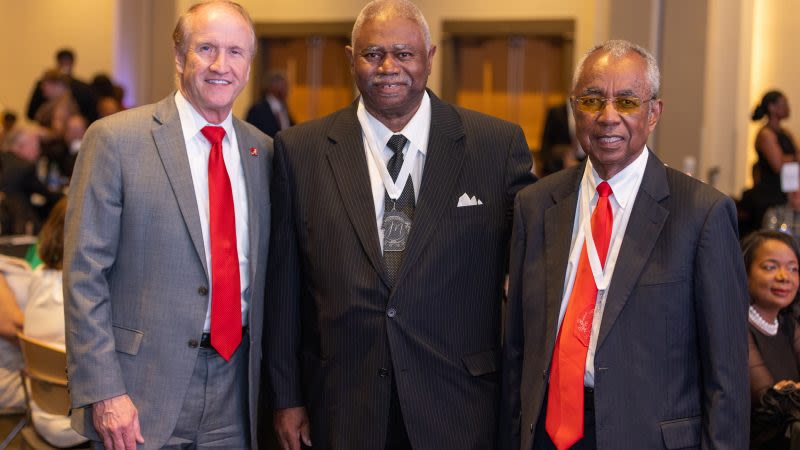
Dr. Arthur Dunning, right, poses for a photo with University of Alabama President Dr. Stuart Bell, left, and Terry R. Woods, center, at the Vivian Malone Alumni Awards ceremony on June 10.
Dr. Arthur Dunning, right, poses for a photo with University of Alabama President Dr. Stuart Bell, left, and Terry R. Woods, center, at the Vivian Malone Alumni Awards ceremony on June 10.
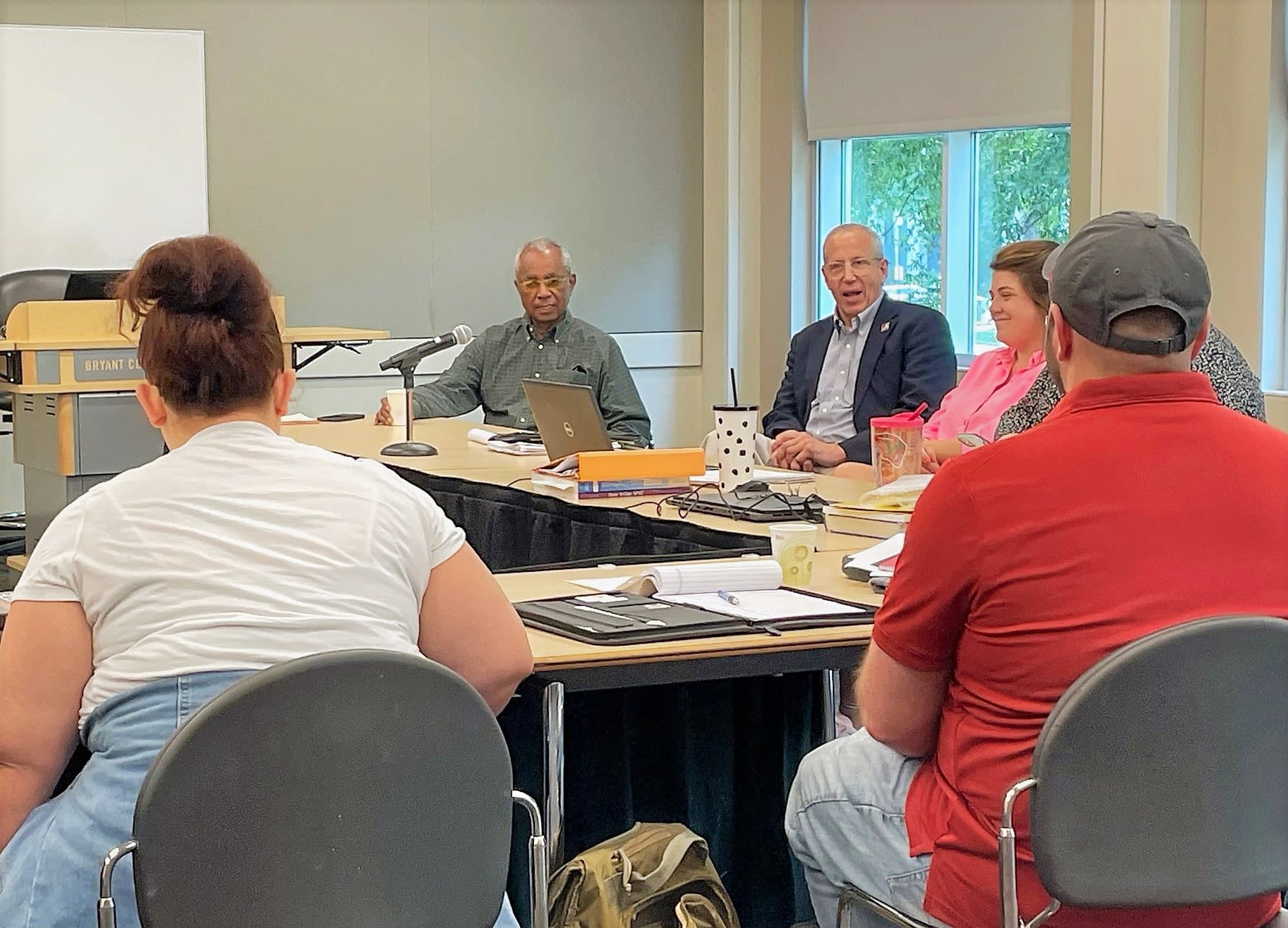
Dr. Dunning speaks to Dr. Stephen Katsinas' higher education students at the Bryant Conference Center on June 9.
Dr. Dunning speaks to Dr. Stephen Katsinas' higher education students at the Bryant Conference Center on June 9.
At the Air Force base, he had access to a library for the first time and realized just how ingrained the racial caste system was in American society compared to Taiwan, where he was “allowed to move freely in so many ways.”
“That was the first time in my life I felt like I could experience a deep sense of freedom and liberty that I never did in the United States, in Alabama,” Dunning said.
Taiwan introduced him to a different worldview and new frame of reference with which to compare his life. He remains fond of east and southeast Asia, having also traveled to the Philippines and Thailand, for helping shape him into the man he is today.
After two years at the base in Taiwan, Dunning was transferred to Maxwell Air Force Base in Montgomery and began taking college courses through the University of Alabama Montgomery Center. He was honorably discharged in late May 1966 and soon became a full-time student. Following advice given by the Montgomery Center’s then-director, he transferred to the main UA campus in Tuscaloosa. He started classes that summer, a 22-year-old Air Force veteran readjusting to civilian life in the segregated South.
Dunning recalls rumors circulating the campus in 1967 regarding a football coach who reportedly thought Black students lacked the athletic and academic abilities needed to play for Alabama. He and four other Black students challenged these racist remarks by walking on to Coach Bryant’s football team.
“I had grown to despise the Jim Crow system,” Dunning said. “Anytime I heard something that suggested superior, subordinate, and a caste system … it was deeply, deeply offensive to me.”
The five men aimed to spark conversation and create visibility with their actions, and their presence at spring practice that day helped kickstart the integration of the Alabama football team while also paving the way for future Black student athletes.
Dunning went on to become a three-time UA graduate, earning his bachelor’s degree in anthropology in 1969, his master's degree in education in 1970, and his doctorate in higher education administration in 1976. Between his master’s and doctorate degrees, he worked with the Tennessee Department of Education in Nashville then served as chief executive officer of District 3 in Thailand for the Pacific-Area Department of Defense Dependent School Programs.
It was 1983 when Dunning made the move to Georgia, working for nearly 35 years in various public higher education leadership positions. He later returned to UA in 2010 to serve as vice chancellor for International Programs and Outreach, a senior research fellow, as well as a professor.
As he was considering retirement, he received a call from the chancellor of the University System of Georgia asking him to take on the role of Albany State University president. Dunning accepted, becoming the university’s ninth president, but would soon face the daunting task of consolidating the historically Black Albany State with the predominantly white, two-year college Darton State – the first non-court-ordered merger of its kind in the U.S. Despite several challenges, racial and cultural tension, and resistance from both sides, his administration succeeded in merging the institutions in 2016.
In 2021, he published the book “Unreconciled: Race, History, and Higher Education in the Deep South,” which chronicles much of his life as well as the consolidation of Albany State University and Darton State College.
Dunning is now retired and said he is rather pleased to see The University of Alabama's progress and efforts to rectify its history of racism.
“One of the hardest things an organization or a country, not just the United States, can do is reconcile its past, because many use mythology to describe who they are and what they are. How do you reconcile the mythology with the facts (and) what happened?" he said. "When I come back to The University of Alabama and see this symbolism … it shows that somewhere over a period of time, leaders are becoming more comfortable with the reconciliation that you cannot define The University of Alabama unless you include Wallace standing in the door to block African American students from registering. You can’t leave that out. That is part of the Alabama story.”
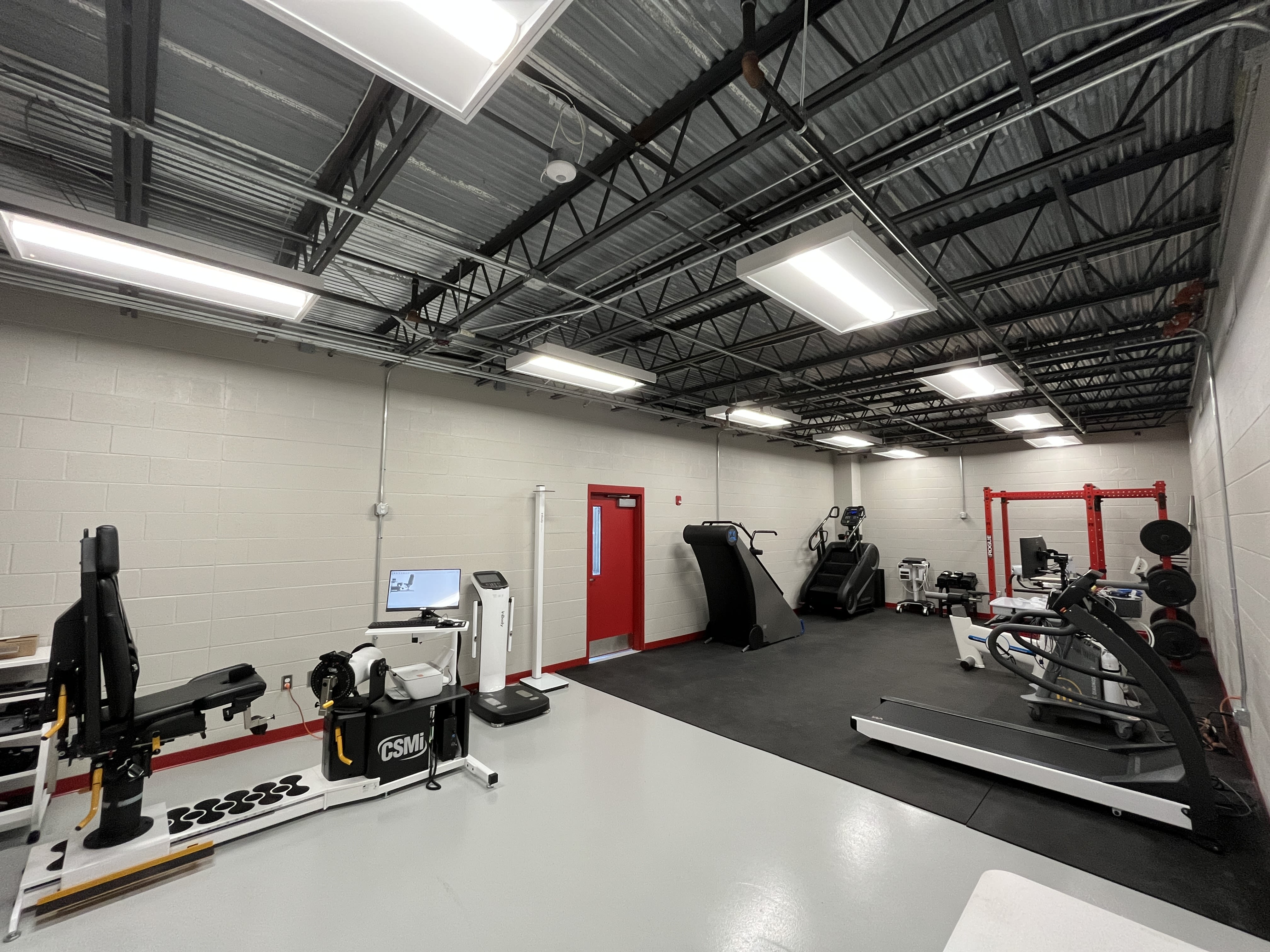
Photo provided by Dr. Lee Winchester
Photo provided by Dr. Lee Winchester
Partnership with Alabama Fire College leads to new exercise physiology lab
Collaboration allows Department of Kinesiology to advance occupational research and provide service to Fire College
What began as a project idea between assistant professor Lee Winchester and professor Mike Esco has evolved into a collaboration between the Department of Kinesiology and the Alabama Fire College.
Dr. Winchester and Dr. Esco, who share a research interest in occupational health as it relates to firefighting, decided to approach the Alabama Fire College with a partnership plan that could help boost exercise science recruitment and research, among other things. They proposed the idea of collaborating to Alabama Fire College Executive Director Matt Russell, which led to lengthy talks with others at the Fire College, including Arthur Willis and David Thornburg. Through their discussions, the project grew to include a new research facility that would be an asset to both the Fire College and the University.
“We kind of said, ‘Can we open a lab here? It sounds like that would be mutually beneficial for everyone,’” Winchester said laughing.
Russell, Willis, and Thornburg were excited about the partnership, he said, and everyone involved was eager to start curating the laboratory.
This exercise physiology lab is housed at and outfitted by the Alabama Fire College, filled with equipment funded by the College of Education, and will hopefully open this month. It features specialized technology needed to evaluate the health of aspiring firefighters as they train. Once the lab is ready for use, the equipment will allow UA researchers to administer a myriad of tests, monitoring cardiovascular, pulmonary, and metabolic function and more.
With the hazards that firefighters face, it is imperative that they are certified and physically fit for the job. For this reason, Alabama and other states require that prospective students pass the Candidate Physical Ability Test (CPAT) before they can begin the certification process. The CPAT puts candidates through a series of strenuous physical activities that simulate some of the essential steps taken during fire service responses. One of the test events, for example, requires a person use a stair-climbing machine for 3 minutes while wearing a 50-pound weight vest and two 12.5-pound weights on their shoulders. Anyone unable to complete these tasks in the parameters specified by the National Testing Network fails the test.
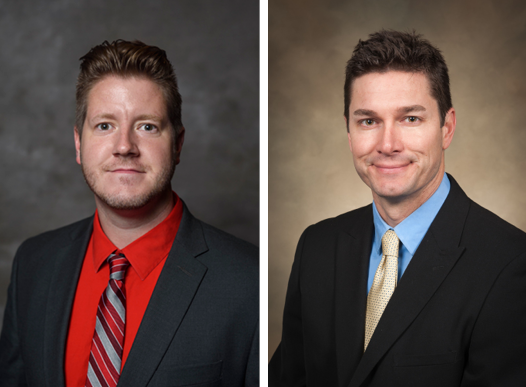
Dr. Lee Winchester and Dr. Mike Esco
Dr. Lee Winchester and Dr. Mike Esco
The heart health and respiratory fitness of firefighters is also critical and should be monitored. According to the Firefighter’s Support Alliance website, two of the top health risks for firefighters are heart disease and cancer. Through this new lab and research, the Fire College will have vital health data about its trainees that could lead to diagnosis of serious health problems or identify who may be at greater risk of heat exhaustion, injury, or other detrimental health conditions.
“We have that research aspect but also get the service aspect from performing tests on the firefighters to say, ‘Here is where you stand,’ ‘You're healthy,’ or ‘You're not healthy, (and) you should probably go and get this checked out by a physician,’ and so on, to help prevent (health emergencies) or deaths while training. That's the goal with all of this.”
The Alabama Fire College is in the top-three largest fire colleges in the nation and has 20 training centers located across the state. The thousands of students that attend the Fire College in Tuscaloosa each year give UA researchers a large population of potential research participants, Dr. Winchester said. Researchers will have direct contact with instructors, who are former firefighters, and specialists at the college, which is another benefit.
“This gives (researchers) access to another group,” he said. “… It also allows us to monitor how their performance changes from the start of training until the end just to be certified, which is something there is not a lot of information and data on.”
Another key goal of the collaboration is to attract students interested in exercise science to the Department of Kinesiology and help to expand the program.
“This partnership puts us in this opportunity to recruit students,” Winchester said. “There are many students in our field who are more interested in this tactical strength and conditioning or looking at occupational health. We can get a lot of those students to come to UA to study.”
The new lab will be available to students beyond kinesiology as well, he said.
“We don't want this to be exclusive to our program. We want to form collaborations around campus. Forming those collaborations gives an avenue for anybody to come research with us. I would love that and welcome it with open arms.”
Winchester is dedicated to and passionate about this type of biological and occupational research and how it can benefit others.
“I've realized this is one of the areas where my passion lies … I feel like I can directly help people. So much research can get lost in translation,” he said. “I like this because I get to do what I love and do biological work where maybe I can save a few lives. That’s what drives me.”
Alumni Spotlight: Three-time alumna joins SEC as associate commissioner for academic relations
Dr. McDonald works to ensure academic successes, efforts recognized to same extent as athletics
When Dr. LeNá Powe McDonald arrived at the Southeastern Conference as the new associate commissioner for academic relations earlier this year, she hit the ground running.
“I have two speeds,” she said, “0 or 90, and I tend not to do well in between. So we hit that 90 pretty early, which is fun.”
Since starting this new chapter at the SEC, McDonald has remained busy. She not only acts as liaison to the conference’s provosts, vice presidents, and chancellors for communications but serves in a variety of other capacities as well, including highlighting pedagogical opportunities and accomplishments within the SEC institutions while also maintaining the conference’s athletics brand, managing academic-related messaging strategies and efforts, and leading scholastic programs and activities, such as the SEC College Tour, SEC MBA Case Competition, and SEC Academic Leadership Development Program, to name a few.
“I think what makes the conference different is there is this kind of push to win in all aspects,” McDonald said. “I do think that mindset keeps things at the forefront, creates the most successful student opportunities, and equips faculty and staff to be successful as well. That mindset is central to what we do, and that is probably why the conference has been so successful.”
In April, the SEC hosted a generative artificial intelligence forum featuring experts from across the SEC and seeing more than 1,000 registrants for the event. This was made possible through the SEC Artificial Intelligence Consortium, a collaborative effort that has recently been re-energized, McDonald said. The conference will also offer a “teaching with AI course” in the near future to better equip faculty and staff to address any AI-related classroom concerns that might arise.
Currently, the SEC is comprised of 14 institutions – soon to be 16 as it plans on adding Texas and Oklahoma – that are known for excellence in athletics but in higher education and economic influence as well. Overall, the conference has a nearly $80 billion financial impact on each institution’s state, McDonald said, adding that a significant portion of that can be attributed to academics and research.
“Commissioner Greg Sankey and our staff at the SEC are very supportive of our academic programs, and I think that is something you don't always get to see in the grand scheme of championships and other things,” she said.
As the associate commissioner for academic relations, McDonald is dedicated to ensuring SEC students, faculty, and staff feel they are being supported and that efforts and accolades in education receive just as much recognition as those in athletics.
“I make sure students, faculty, and staff at our institutions throughout the conference feel as if they are not just a part of a successful athletic engine but that they are part of a successful group of institutions on the research, academic, economic, and community development side of things,” she said. “It is paramount that we continue to become synonymous with greatness across all platforms.”
Before the SEC, McDonald worked at The University of Alabama for several years as director of internal affairs and UA System liaison in the Office of the President. She also served as communications specialist in the UA Division of Advancement, a communication studies instructor, and a funded graduate researcher. Playing a part in the building dedication for Autherine Lucy Hall is one particularly meaningful part of her UA career, she said.
“Perhaps more than any other college or university, having such pivotal moments in the history of education in our country directly associated with both The University of Alabama and the College of Education is something I think everyone should take time to be reflective about," McDonald said. "For me, that tie is one that is unique but also very important as an alum and even as an employee.”
McDonald is a three-time UA graduate, earning her bachelor’s degree with concentrations in community development and dance, a master’s in communication studies, and her doctorate is in higher education administration. She and her husband Lyndell McDonald met at the University, where he continues to serve as an assistant professor in theatre and dance.
As an artist as well as a professional who has worked in higher education and on the business side of things, having that ability to study and grow across disciplines while on one campus was an important aspect of attending UA, she said.
“I think The University of Alabama does a very good job of allowing students to cut their teeth on a variety of things,” Dr. McDonald said. “If you want to do something, I do believe you can find it at the Capstone.”
Her diverse background gave her a solid foundation and a multitude of skills that she has used to build her career. Her record of accolades further adds to her impressive portfolio – she presented at the Oxford Women’s Leadership Symposium in 2018 and was named a Birmingham Trailblazer by the Birmingham News in 2015, Best Young Professional by Birmingham Magazine Best in Minority Business Awards in 2014, and an honoree in Who’s Who in Black America in 2012.
“All of those experiences prepared me to be able to take on a wide variety of concerns, a wide variety of issues, and to have a more expansive platform to do so,” McDonald said.
With a research background in women in leadership and having written her dissertation on the experiences of women leaders at public four-year institutions, McDonald said it is not lost on her that she entered a seemingly male-dominated field, but it is also a factor that motivates her.
“Having the opportunity to be a part of discussions and to really impact the quality of place for our students, faculty, and staff across the (SEC) was an opportunity I could not pass up.”
The birth of her daughter earlier this year and knowing that the work of the SEC and its institutions will impact her life in some way provides further incentive for McDonald to continue to move forward and grow professionally.
“When you have a little girl, you want to show them that all things are possible,” she said. “They may not be able to do everything, but it does make you push harder to make sure that you're working to show leadership can happen at every level, again with an emphasis on gender leadership for me. It is particularly paramount in my brain that my family is a priority, but that I also work to create and maintain the best life and world for her, too.”
Though McDonald has already accomplished so much artistically, educationally, and corporately throughout her career, she has no plans of slowing down, feeling she hasn’t “hit the pinnacle quite yet,” she said.
“I think there are a lot of things that I would hope to accomplish, but the biggest thing is continuing to make sure that those who have invested in my life, in my career, and in my education feel as if it was an investment that was not wasted.”
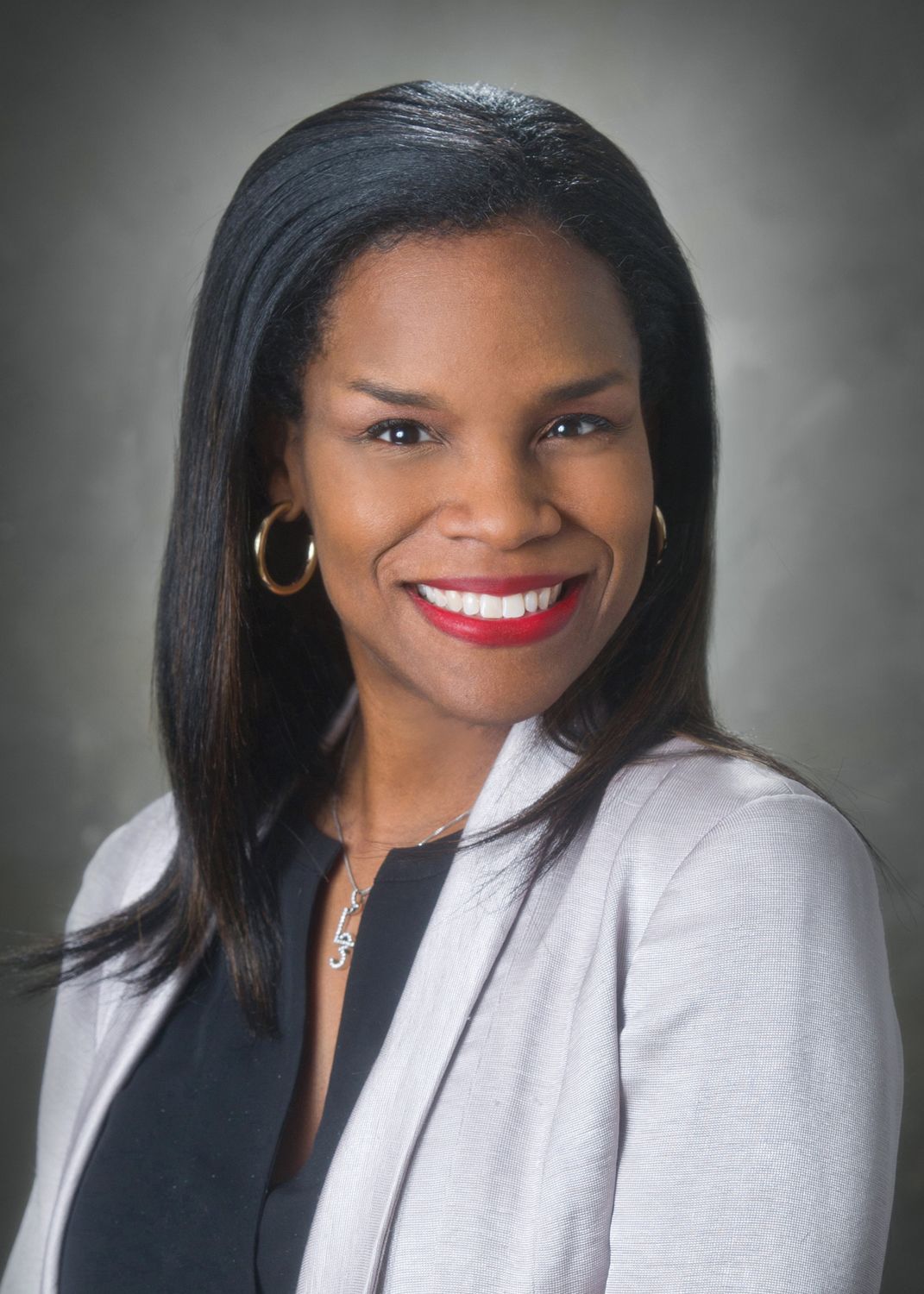
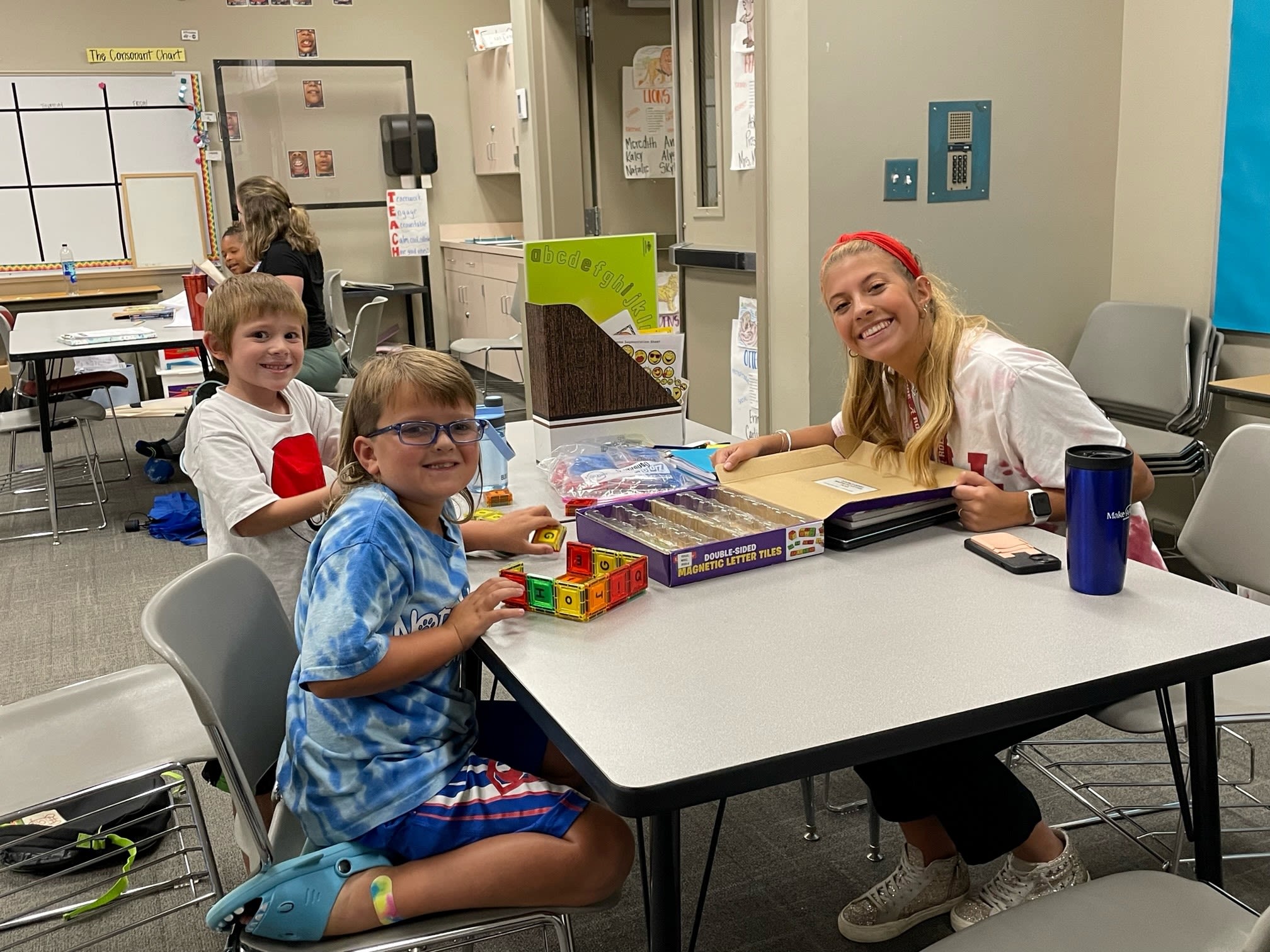
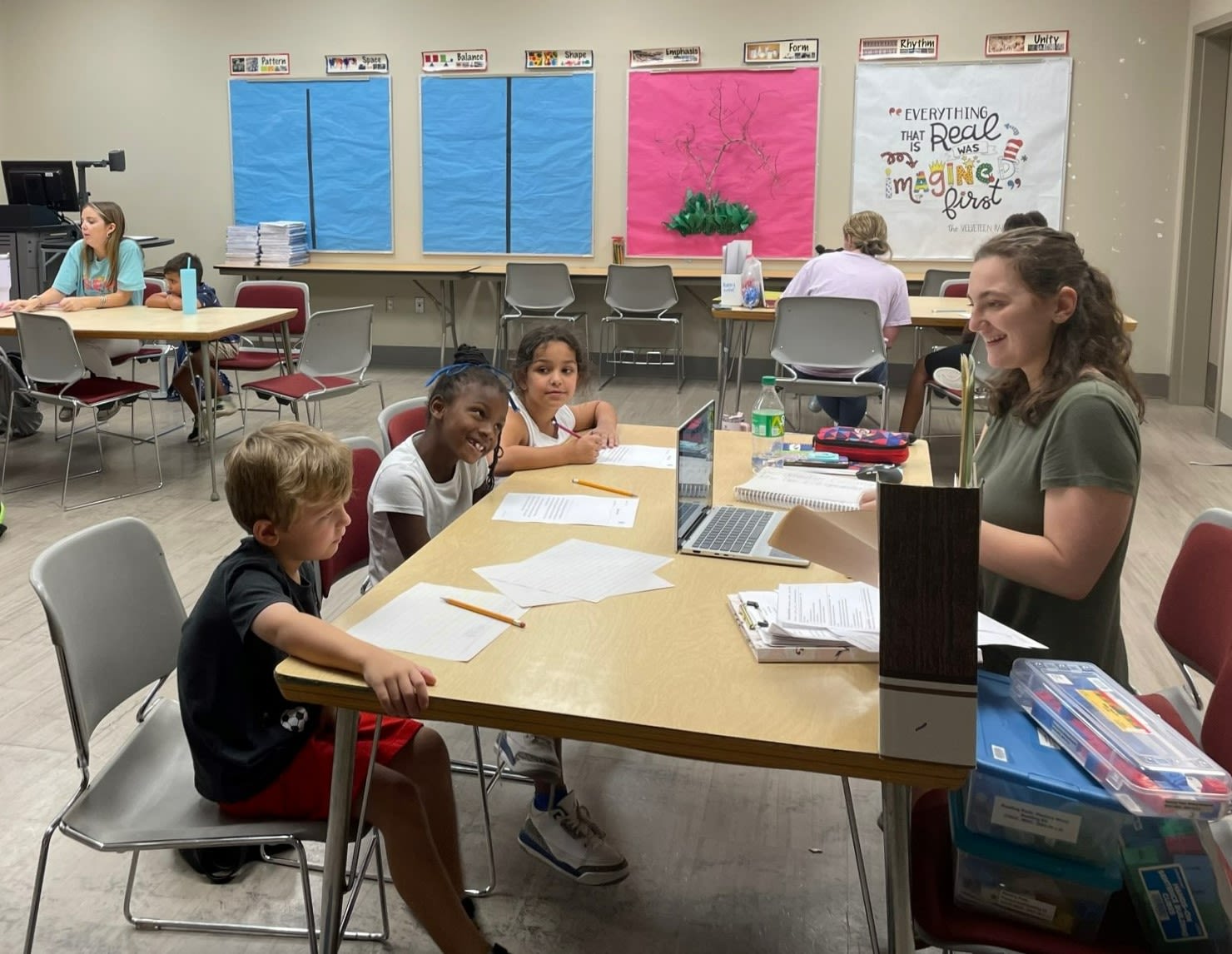
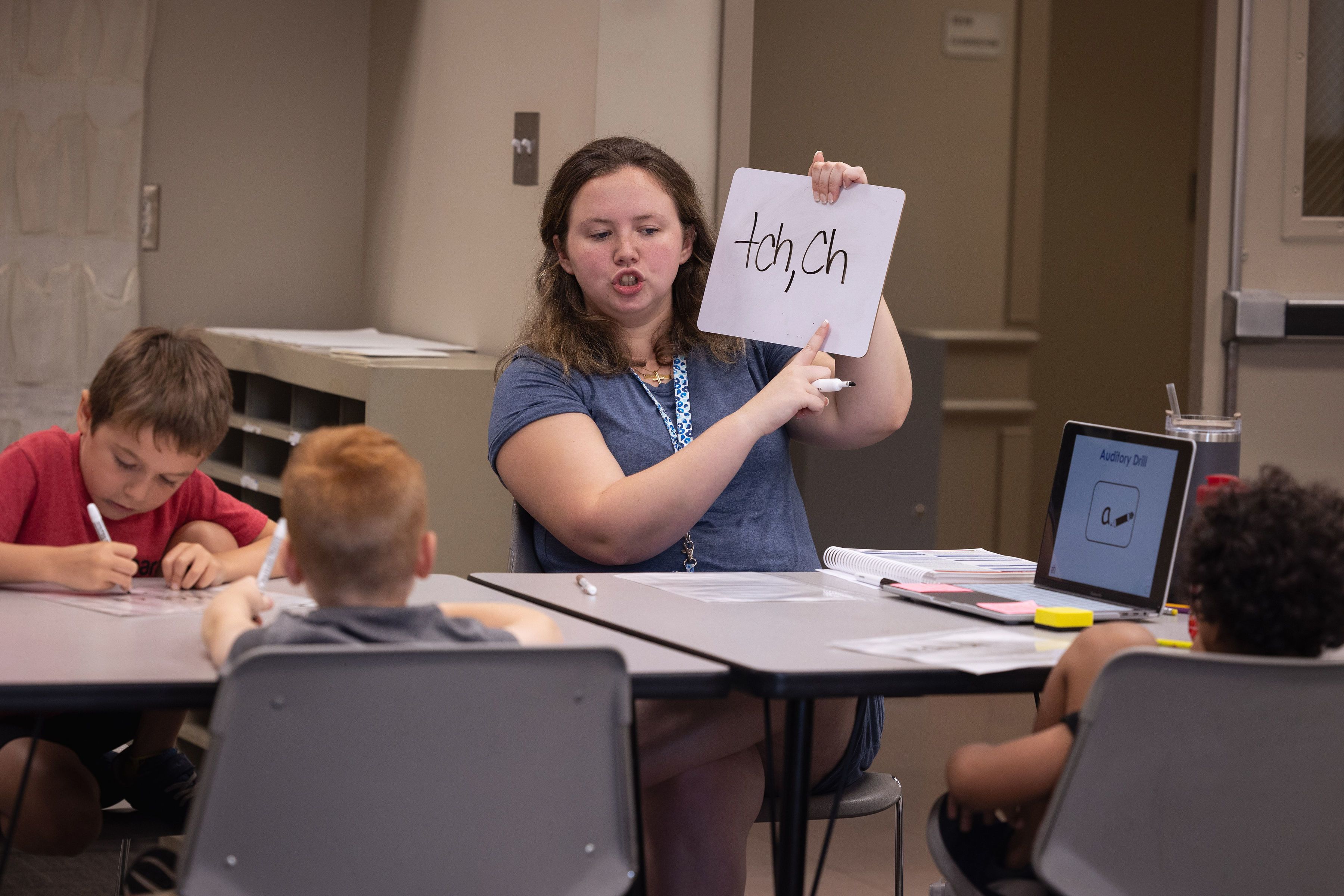
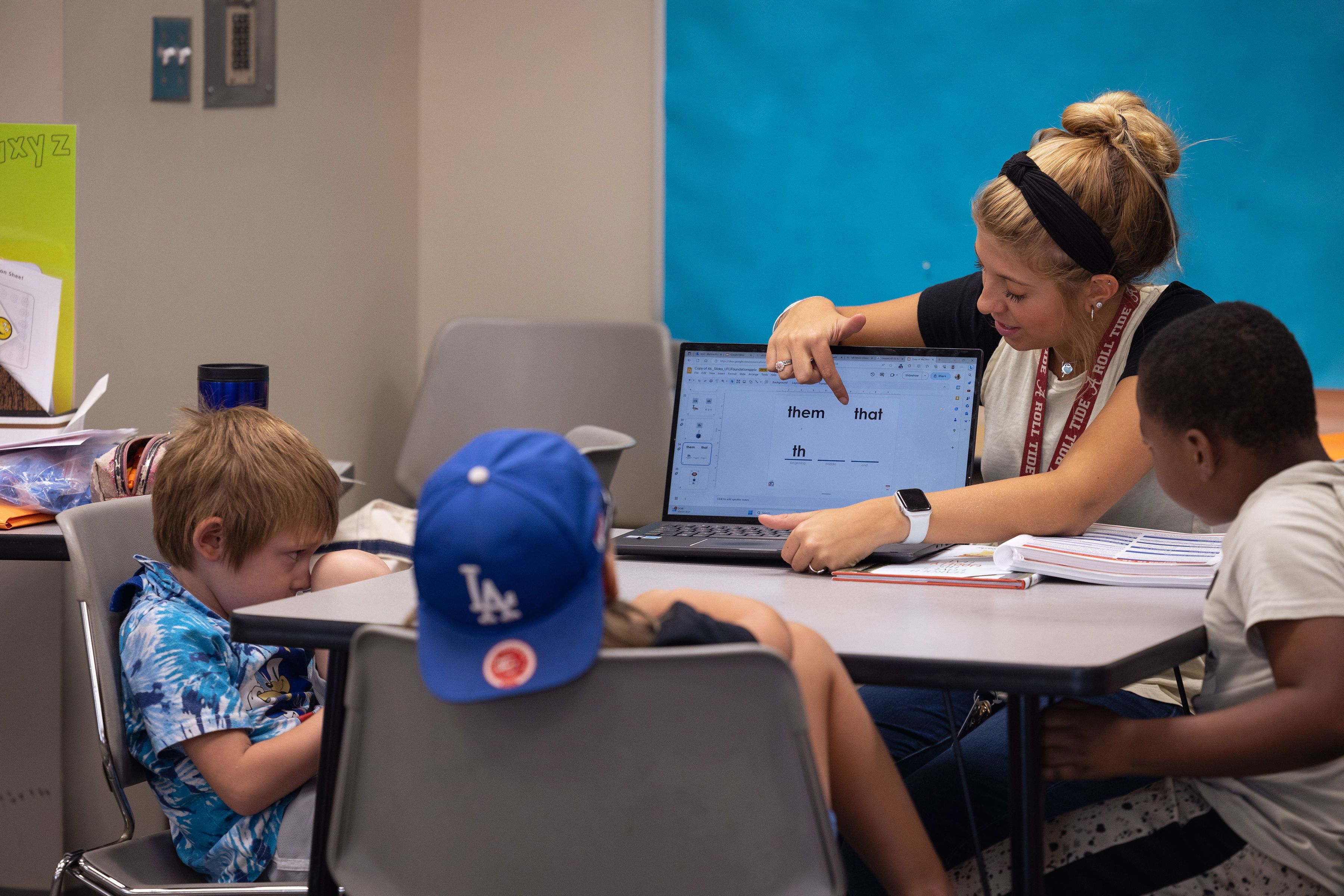
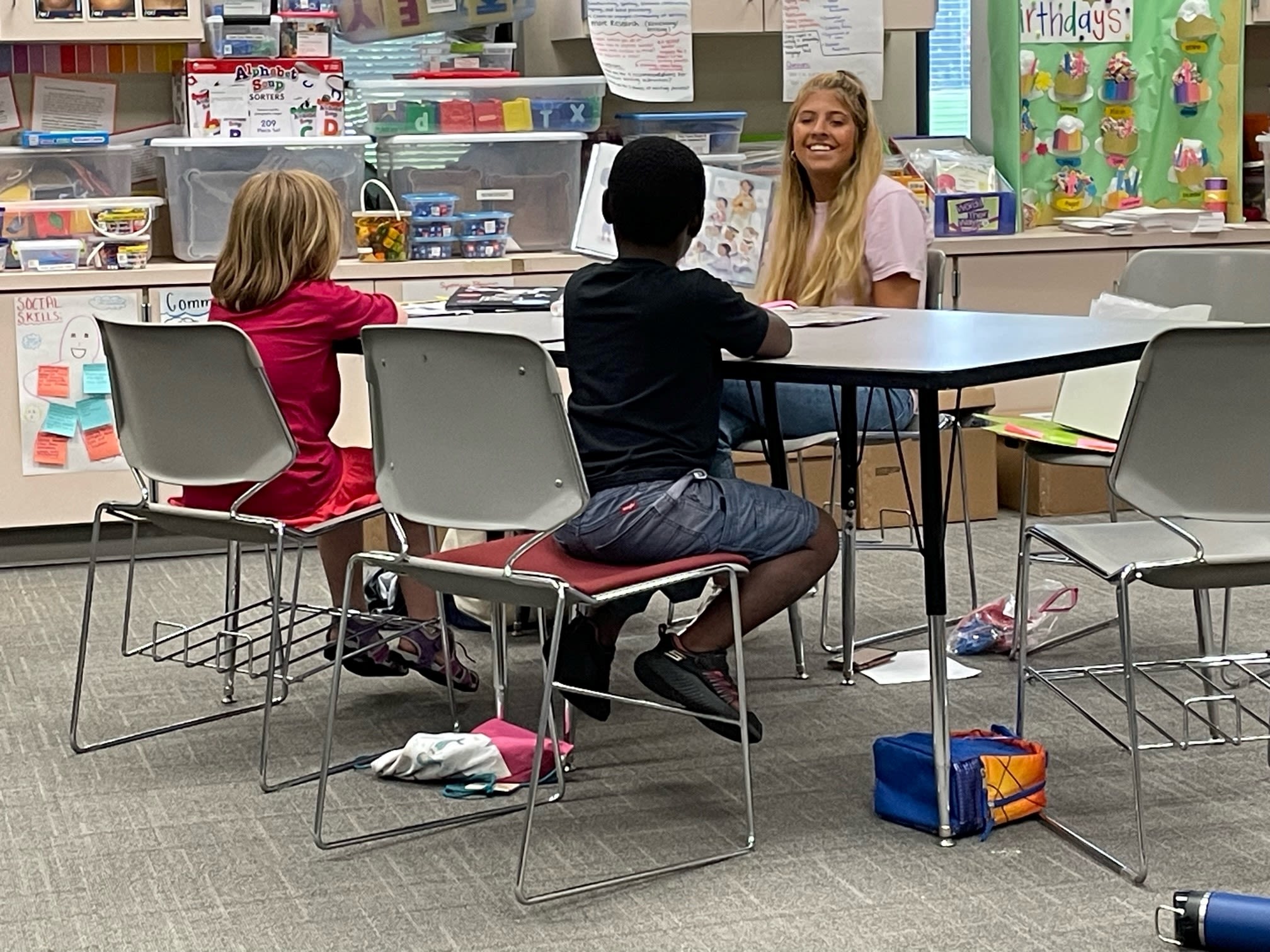





Student Focus: Summer learning
SEW, BLAST Academy foster fun, educational experiences and help prevent learning loss
As students spend their summers playing outside, watching TV, or catching up on sleep, it’s fair to assume that school is probably one of the last things on their minds. But when considering the amount of knowledge the average student can lose without mental stimulation over the course of the break, this can raise concerns for parents.
According to a recent study by the American Educational Research Journal, students in first through eighth grades lose about 17-34% of the educational skills gained the prior academic year during those summer months. The study also found that once that knowledge loss occurs, students are more likely to experience it again the following summers.
The Summer Enrichment Workshop (SEW) and BLAST Academy are two University of Alabama programs working to help prevent and reduce that "summer slide" by creating an environment that gets young students excited about summer learning. Both initiatives aim to capture students’ attention and keep them eager to learn through engaging lessons and activities typically not found inside a classroom.
“(Summer learning programs) are crucial for academic retention as well as to build on the skills taught during the academic year in order to best prepare students for their upcoming school year,” said Dr. Daniela Susnara, director of planning and assessment for community engagement for the Center for Community-Based Partnerships.
SEW and BLAST Academy were designed to minimize summer learning loss in a way that still inspires the students to have fun, she said.
BLAST Academy, which is prepared by the College of Education and the Center for Community-Based Partnerships within the UA Division of Community Affairs, welcomed more than 250 students ages 5-14 from Tuscaloosa and Hale County as well as from across and outside of Alabama. SEW, active for more than 40 years now and sponsored by the College of Education’s Multiple Abilities Program in Special Education, hosted 157 local gifted and talented students from kindergarten through sixth grade.
These programs are important experiences for the young attendees but for the UA students assisting with them as well – particularly those in the Multiple Abilities Program. SEW and BLAST Academy provide critical opportunities for MAP pre-service teachers to build confidence and gain classroom experience the summer before their senior year.
“(SEW) was a kind of wake-up call into being a teacher. It really prepared me for going into my full-year internship and for having my own classroom,” said Amber Barton, SEW supervisor, third-grade teacher at Huntington Place Elementary School, and a MAP alumna. “It gave me great opportunities for classroom management and helped me determine how I could help all my students, regardless of their ability level.”
SEW immerses gifted students in two topics of their choice through interactive lessons and activities, which can benefit them more than other methods used in the average classroom. With options like archaeology, crime scene investigating, kitchen science, or robotics, something is sure to captivate every student.
Students are sometimes having too much fun to realize they’re learning, SEW Director Sharron Maughn said. They can’t wait to go home and talk about what they did in class that day.
“I love what one boy said,” she said. “His mom asked him what (SEW) was like, and he said, ‘It’s a lot like school, but you really get to learn.”
SEW courses are taught by MAP students who choose their topics at the start of the spring semester their junior year. They spend the spring creating lesson plans and coming up with interesting projects that help teach their topics. Working with the young students that summer allows the pre-service teachers to get constructive feedback from SEW supervisors, who offer guidance as needed.
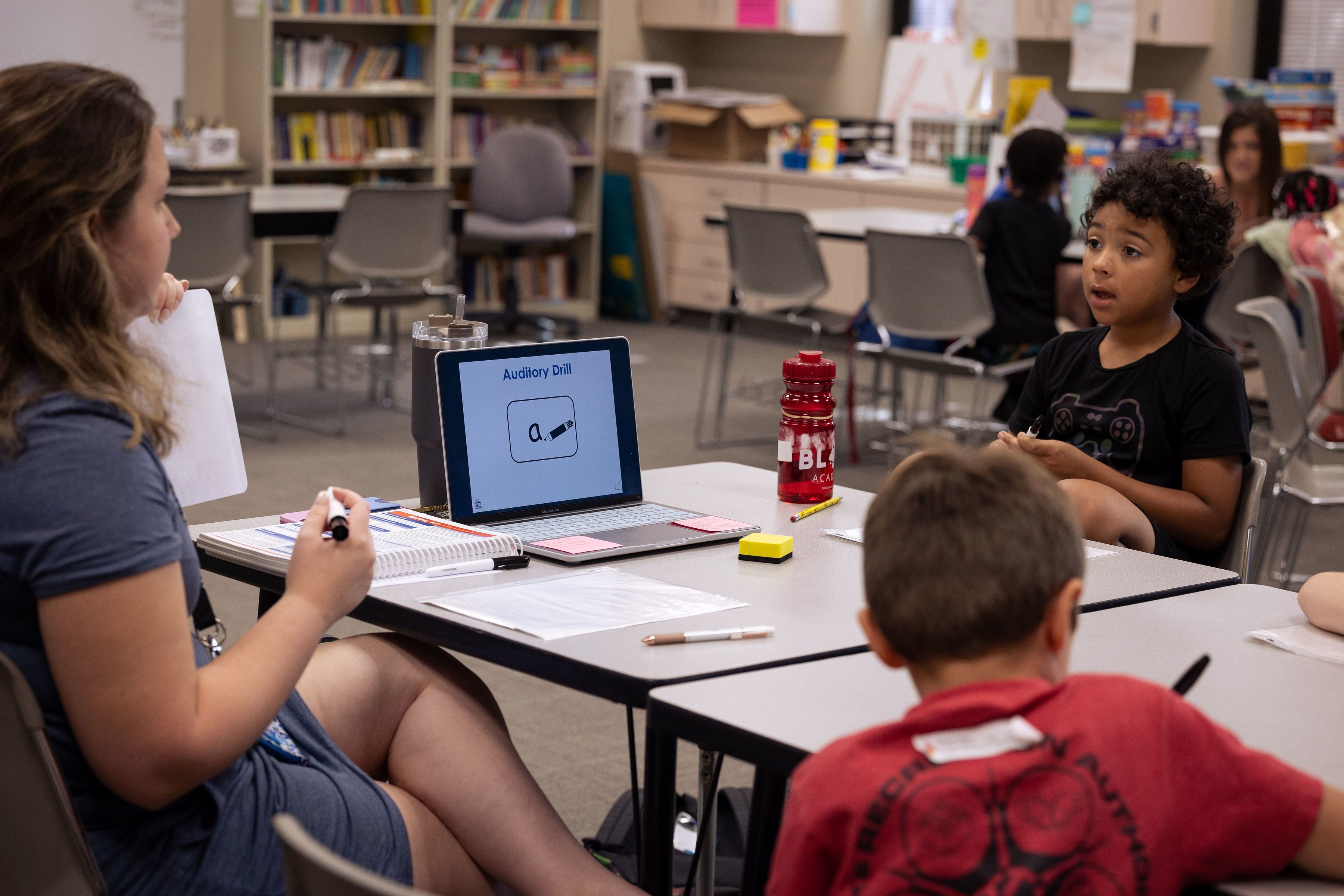
“That's the No. 1 reason we do it, because it is good experience for our MAP students," Maughn said. "I think that is where I see them going from interns to real teachers."
Belser-Parton Literacy Center Director and Literary Education Professor Dr. Carol Donovan enjoys watching her students become self-assured in their teaching abilities during BLAST Academy as they work closely with small groups of rising first- and second-graders on reading intervention.
“What I like about programs like this is watching them really become teachers as they make connections with the kids and relationships where the kids are super excited to see them and get right to work,” Donovan said. “(The MAP students) sometimes seem surprised, but I'm always extremely pleased when they sound like teacher experts about their kids.”
This collaboration with BLAST Academy gives the pre-service teachers a chance to concentrate on phonics, fluency, and comprehension instruction while using a phonics program and techniques they learned in Donovan’s class. They also provide creative activities related to the lessons for the children.
“This is good experience, especially working with reading intervention,” MAP student Emily Sheppard said. “I think it is going to prepare us for when we go into classrooms. We might have students who are struggling with this part of reading or with this part of spelling, so this is practice for us to learn how to work with and make changes in a curriculum to meet (the varying levels of) the students.”
The “BLAST” in BLAST Academy stands for “Building Leaders through the Arts, STEAM, and Teamwork” and reflects its multi-faceted curriculum. The program is powered by UA graduate students, undergraduates, and several alumni who serve as group leaders and managers, counselors, and instructors. Classes are developed by UA students and adjusted for each age group’s needs. Music Education students also participated this year by instructing music lessons.
“Our goal is to teach kids and to enhance student outcomes in art, music, physical education, social emotional learning, and STEAM without the students knowing they are learning or ‘in school,’” Susnara said. “We have been told by parents and families the BLAST Academy ‘reignites’ their child’s excitement for learning and better prepares them for the upcoming school year.”
Parents voice their appreciation for the summer learning programs as well as the positive effects they have on their children.
“I think the parents love how much their kids enjoy learning, because they say the kids are excited to come (to SEW) and won't miss a day,” Maughn said.
Barton can also attest to this as she has two children who attend SEW and has worked all sides of the program.
“Normally in the summertime, you would think you'd have to drag your kids out of bed, but that’s not the case,” she said. “My kids pop up. They're so excited. They can't wait to tell me about everything they're doing in class that day and about what they learned.”
As SEW and BLAST Academy start to wind down, some students talk excitedly about returning the following year, ready to jump into another summer of fun learning experiences.
“As a teacher, our goal is for kids to be excited to come to school and be excited to learn,” Barton said. “These aren’t things that you will learn in a normal classroom. It's high interest, it's high engagement, and I love to see how excited the kids are when they come in.”
Upcoming Events
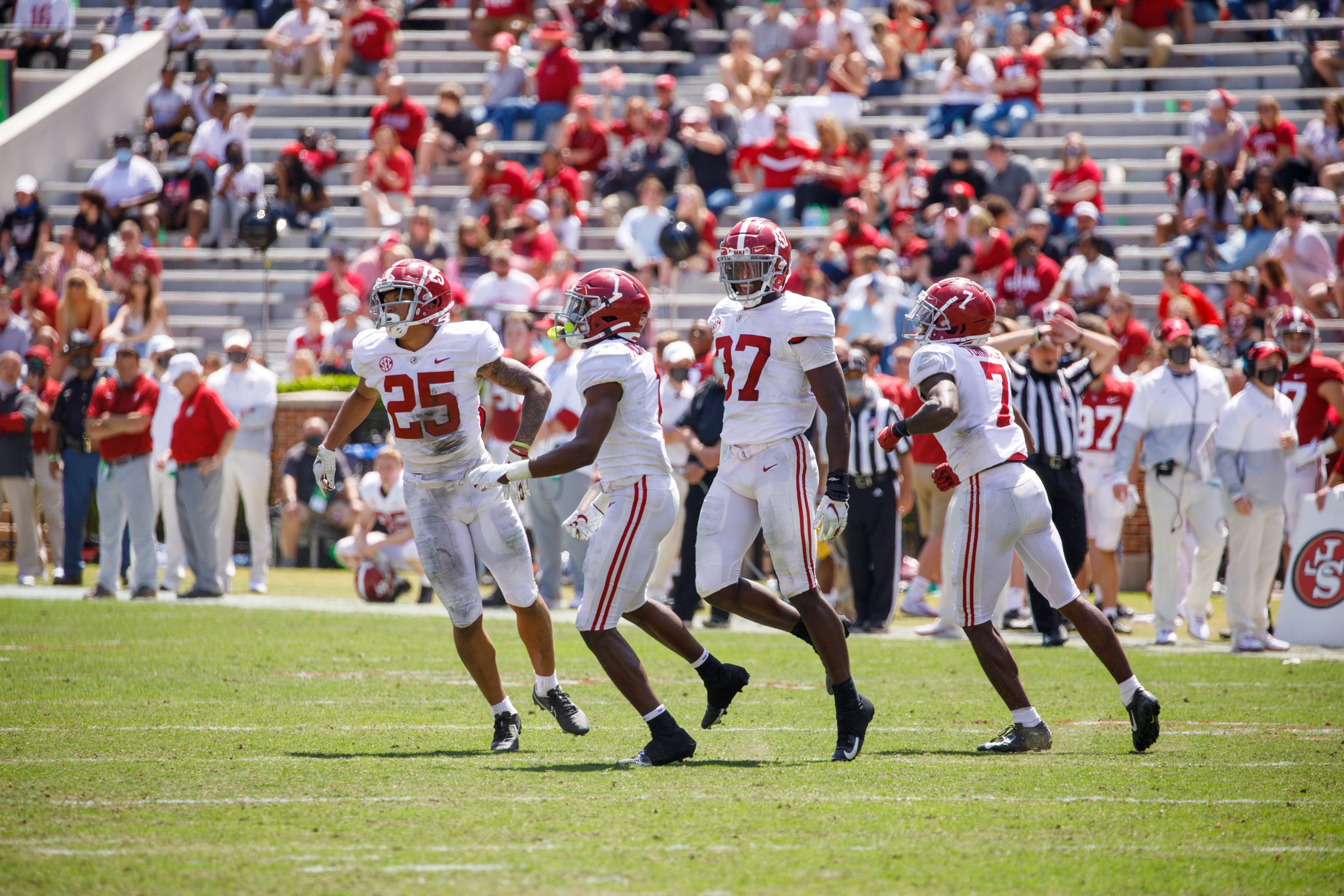
SEPT. 2
Alabama vs. Middle Tennessee
The Crimson Tide football team will face off against the Blue Raiders at Bryant-Denny Stadium for its first game of the 2023 season. Kickoff starts at 6:30 p.m.
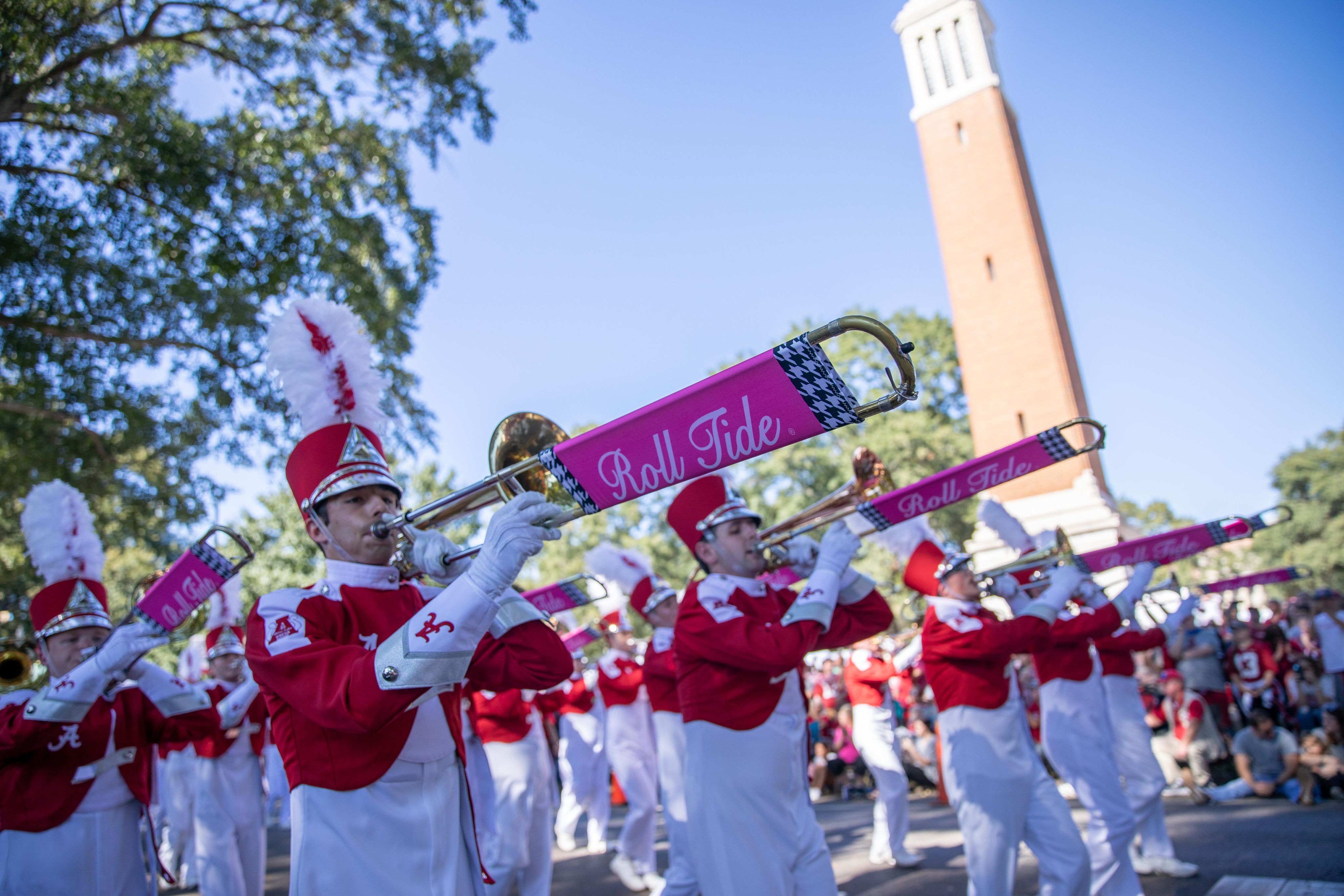
OCT. 14
Homecoming 2023
Registration and dates for events and participation will be available early in the Fall 2023 semester.
Student Deadlines
AUG. 23
Fall classes begin, transfer credit deadline
Classes begin for Fall 2023 Full Term.
AUG. 25
Degree completion deadline
AUG. 30
Degree application deadline for Fall 2023 graduation
SEPT. 4
UA closed for
Labor Day
No classes.
SEPT. 8
Fall enrollment bill due
Payment in full or participation in a payment plan is required before noon for all Fall 2023 bills. Schedules will be canceled for students who haven't paid in full or participated in a payment plan before noon on this date.
If you are using a payment plan, please check studentaccounts.ua.edu/calendar-2/ for those due dates.
OCT. 6
Degree application deadline
Last day for graduate and undergraduate students to submit a degree application through myBama. Only after petition and approval by the student's college will an application be accepted after the published deadline. If approved, the student will be assessed a $25 non-refundable late fee in addition to the degree application fee.
OCT. 30
Spring 2024 registration begins
Time assignments for registering will be available Oct. 1.
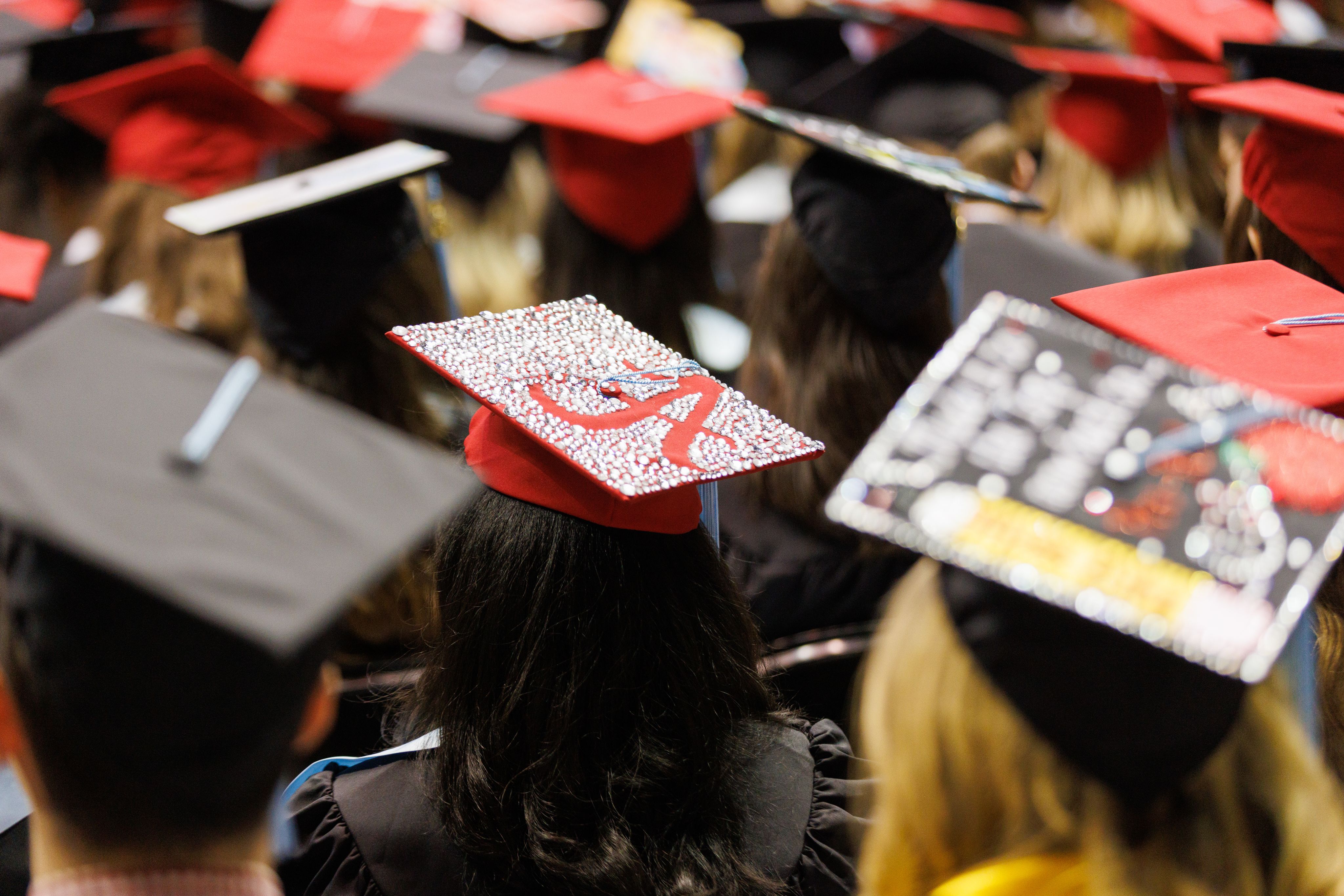
DEC. 16
Fall commencement
Visit commencement.ua.edu for additional information.
For other editions of the College of Education Newsletter, please visit our Newsletter Archive.
If you have an event, know of someone who should be highlighted, or have any other story ideas, please let us know.
Contact Kelcey Sexton at klsexton@ua.edu and 205-348-5528 or Dr. Rebecca Ballard at rebecca.ballard@ua.edu and 205-348-7936.
